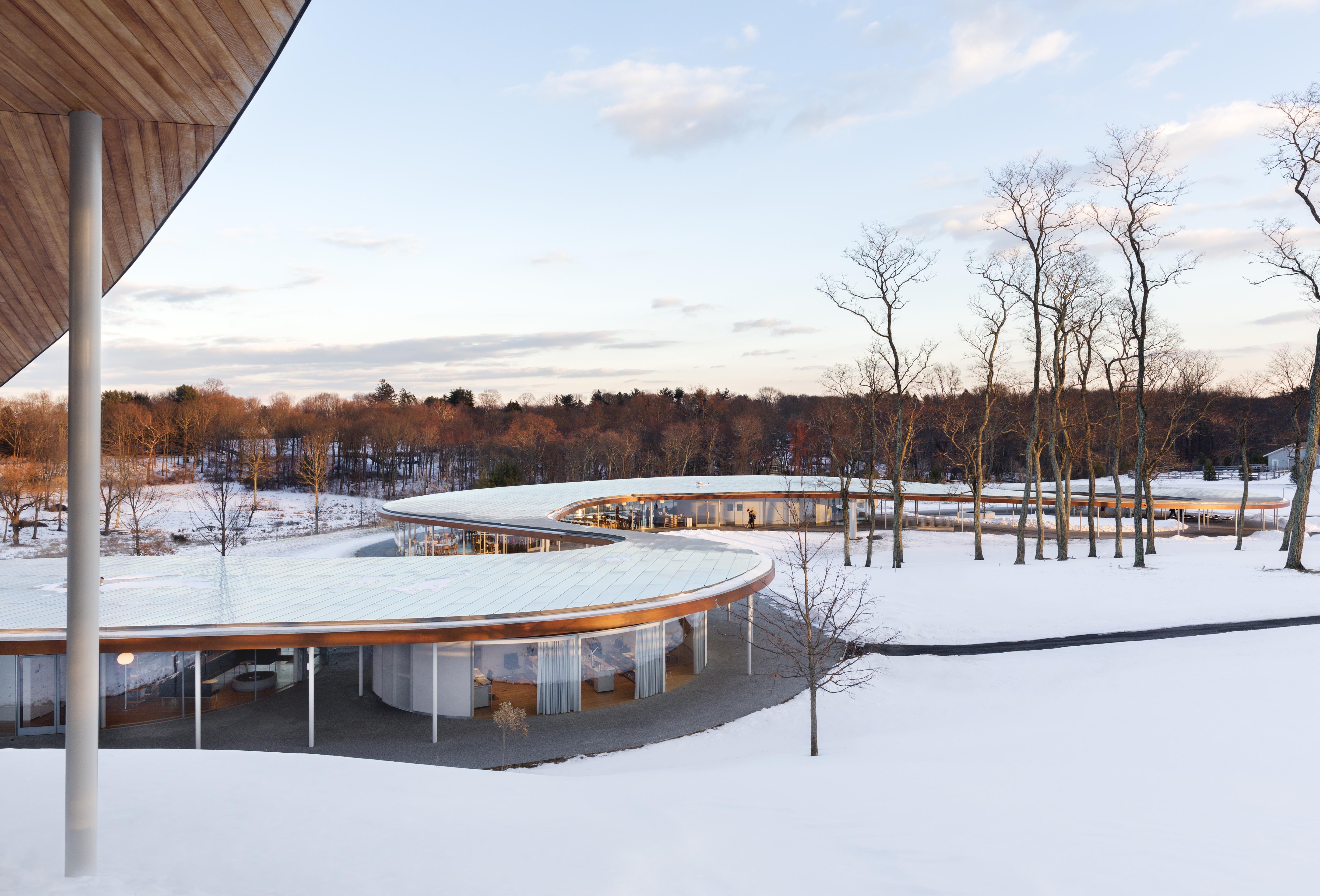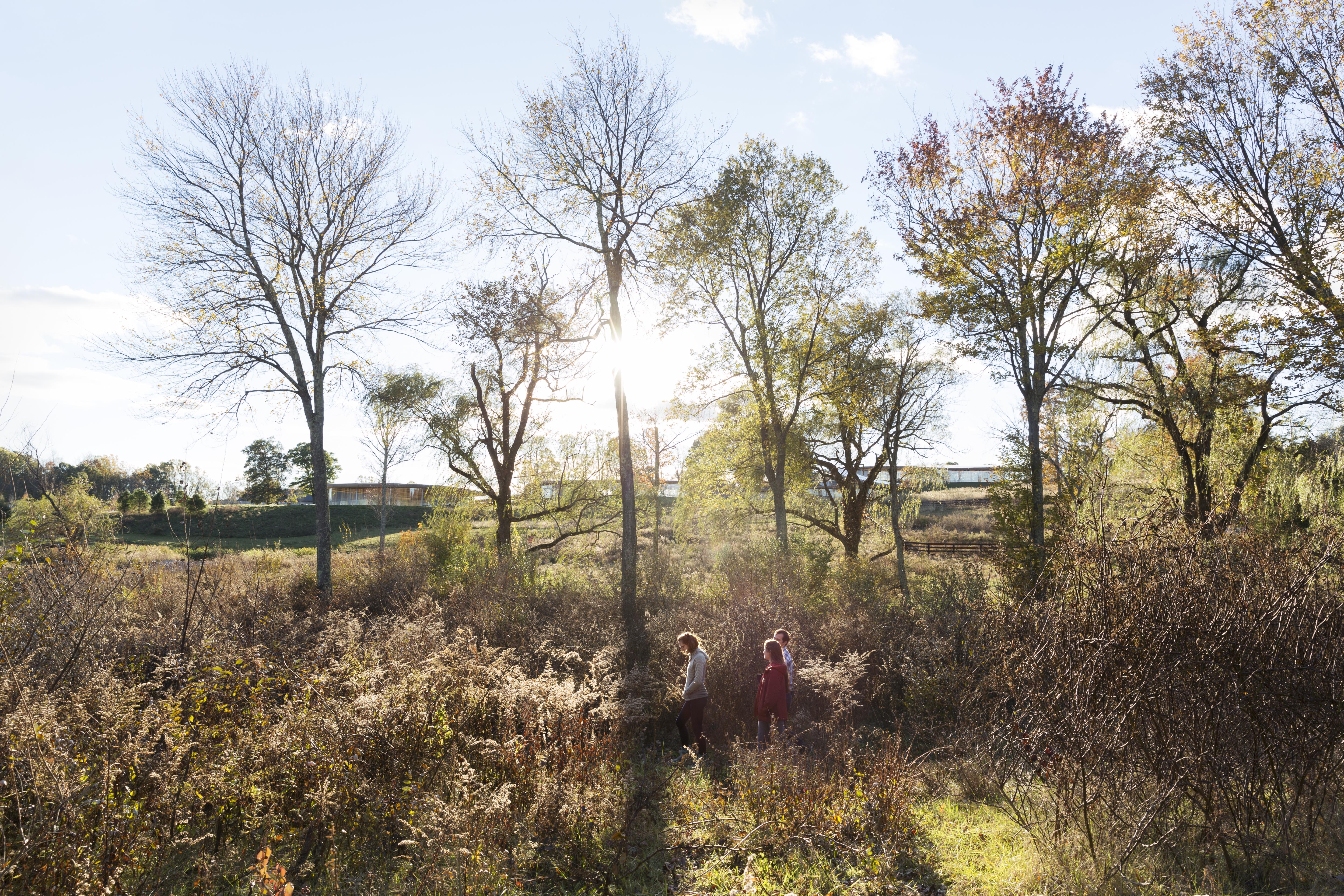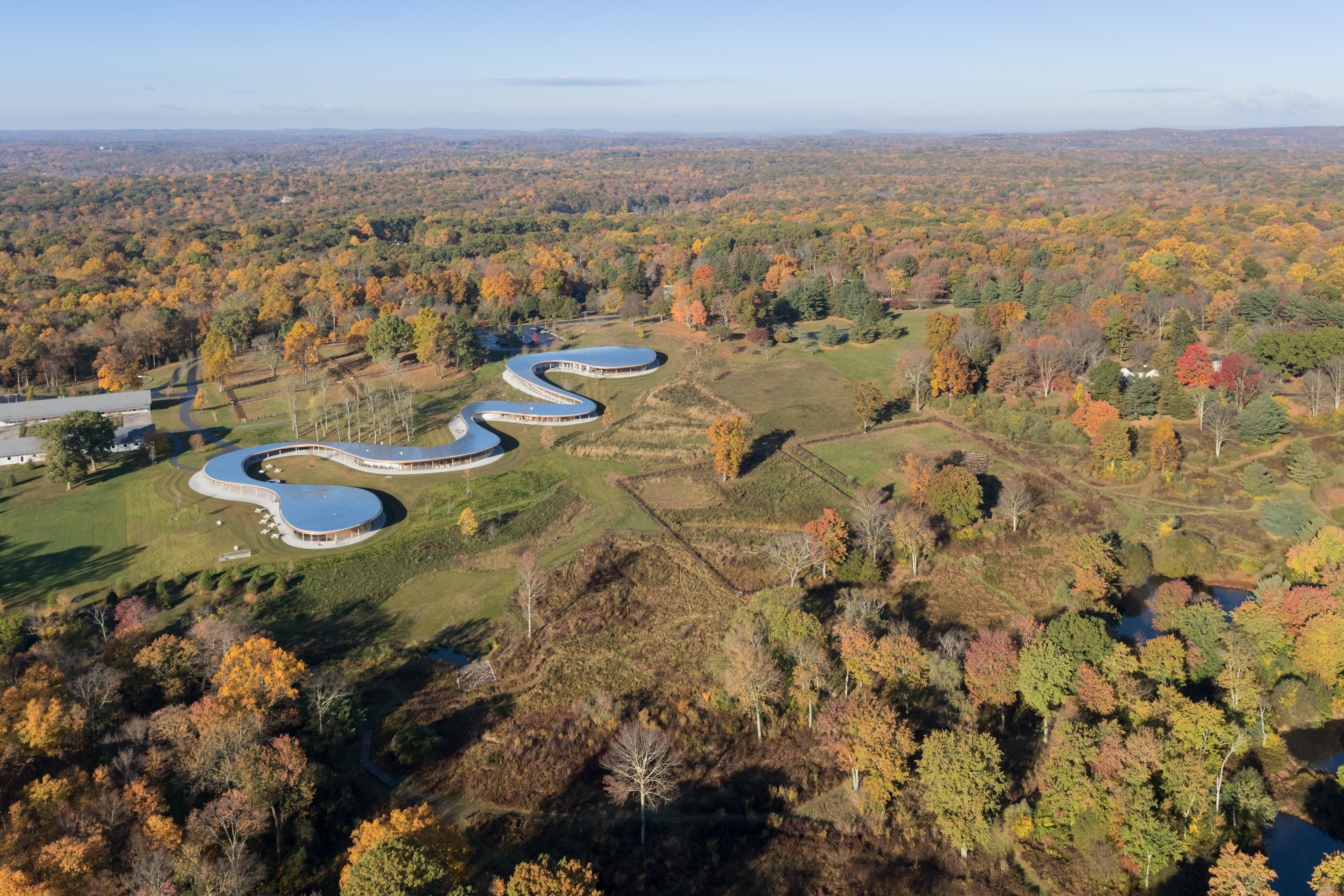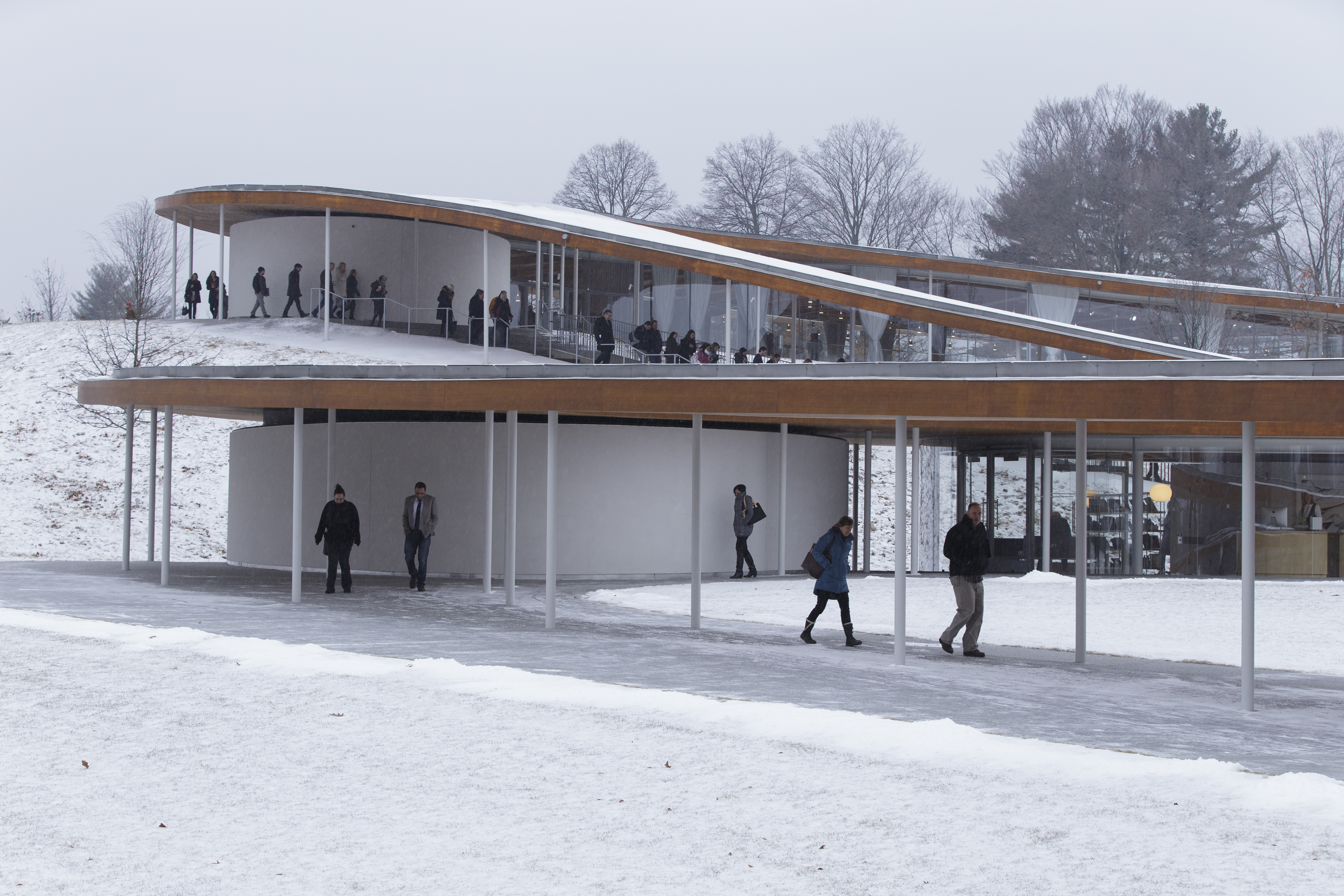- What is your name? – Adam Thatcher
- What is your occupation? –Director of Operations atGrace Farms Foundation
- What was your favorite green memory growing up? – Visiting a recycling facility and seeing how easy it is for recycling to be sorted and reused. Conversely, I also have distinct memories of seeing burnt trash and thick layers of roadside trash during my travels to places like India and Africa. These images, as well as sights from visits to local trash burn plants, motivate me to achieve waste efficiency at Grace Farms and beyond.
- What did you do before your role at Grace Farms? –Food and Beverage Director for two ski resorts in north Lake Tahoe. Before starting at Grace Farms Foundation, I was the Director of Food and Beverage of Squaw Valley Alpine Meadows, a nationally renowned mountain resort with more than 6,000 skiable acres in California. I oversaw 22 different food and beverage destinations, including catering and events, lead the concept and design of 11 new restaurants with environmentally sustainable operations, and managed more than 400 employees a year.
- Why do you believe it’s important for people to go to Grace Farms? –Grace Farms Foundation aspires to advance good in the world, and opened Grace Farms for people to experience nature, encounter the arts, pursue justice, foster community, and explore faith. This work is centered within our River building, designed by the Pritzker Prize-winning firm SANAA, and 80 acres of open space, which is open for the public to enjoy free six days a week. Grace Farms is a place that allows people to come with family and friends to explore a beautiful place or just simply stop and pause. We encourage visitors to come and enjoy the incredible architecture and space as a respite, or to engage with these five initiatives. We offer weekly opportunities to get involved through public programs and private workshops, including our most recent Regional Convening for Sustainable Development. This was a first-of-its-kind program which brought local green advocates together across sectors to foster awareness about the UN Sustainable Development Goals, education about local solutions, and inspire collaborations among government entities, non-profits, and businesses.
- What are the most rewarding and challenging part of your job? –The most challenging part is creating an active, yet peaceful space. Grace Farms is a shared space for the community, not-for-profits, and our own staff, so keeping this balance is not always easy. The most rewarding part of the job is seeing it all come together the way it is intended.
- What is one environmental change you vow to make this year? –Reduce my consumption of beef.
- Can you tell us more about how supporting Grace Farms is helping the global economy? –Grace Farms Foundation is focused on supporting the local community and encouraging global action. We provide space and leadership in the areas of Nature, Arts, Justice, Community and Faith to drive new and unexpected outcomes. For example, we are currently working on a global advocacy campaign to build awareness of clean supply chains in both labor and environmental practices. As a result, our intention is to encourage a cleaner economy.
- If there was one industry/product that you could make more eco-friendly, what would it be? –Single Use Plastics
- What’s next for Grace Farms? We are pursuing a Gold LEED Certification for Operations + Maintenance. As a LEED Certified site for Building Design + Construction, the next step is responsible management of our space and operations.Our hopes are to explore renewable energy here on site. We are excited to see companies like Tesla are advancing renewable energy and aesthetic design. We hope to be a space where design, innovation, and sustainability converge.
- What’s your favorite book? Polar Bear, Polar Bear What Do You Hear? By Eric Carle
- Where do you turn for your news? Mostly Apple News following topics of ‘Climate Change’, ‘Tesla’, ‘Rewable Energy’, and National Geographic
- Where on the green scale do you fall? The more I learn the more I care.I’m currently an MBA candidate at NYU Stern, with a focus on social responsibility and sustainable business. Recently I have been trying to commit at least 2 – 3 hours a week to attending the online lectures of the SDG Academy. The SDG Academy is an incredible resource to learn about the history of sustainable development and the priorities we need to focus on to ensure a sustainable future with video lectures led by the leading experts of our time. Every day I wake up with a new sense of urgency but also an excitement of the challenge that there are changes I can make every day that helps reduce my personal carbon footprint.
- Do you lead a vegan lifestyle? No, but have significantly cut back consumption of red meat and try to only purchase organic chicken
- Who would you want to have a conversation with past or present? Abraham Lincoln; I’d be very interested to hear his thoughts on the imminent threat climate change places on humanity and how he would balance the importance of an industrial economy while protecting every human’s rights
- What makes Grace Farms unique? Grace Farms is really the only place I have ever heard of that combines stunning architecture and programs that are designed to complement the landscape that is free of charge. The combination of open space and a building made of glass makes for an experience unlike any other. Furthermore, the Foundation has some of the most exceptional people I have ever met and every person is uniquely suited for their role here. As a team, we come to every task with a wide array of experiences and skills that make for some really unexpected outcomes.
- How does Grace Farms positively impact the environment? Through the preservation of more than 80 acres, Grace Farms is open and free to the public to experience nature. Through the restoration of the former equestrian property, Grace Farms planted more than 2,000 trees and shrubs and return more than 15 acres from turf make to native meadows. On a daily basis, Grace Farms Foundation grows a significant portion of its produce on site, limiting the carbon footprint associated with our food service, and we purchase 100% renewable energy certificates to offset our electricity consumption. Since last year, we have decreased our energy consumption by 20%. Additionally, Grace Farms heating and cooling is controlled by 55 geo-thermal wells. Geothermal heating and cooling is a significant upfront cost, but in the long run, it is significantly more efficient than conventional HVAC systems.
- What do you want the legacy of Grace Farms? To be a model of a new kind of public space that inspires local action and global impact.




 Food
Food Farmers
Farmers Sustainable Living
Sustainable Living Living Planet
Living Planet News
News